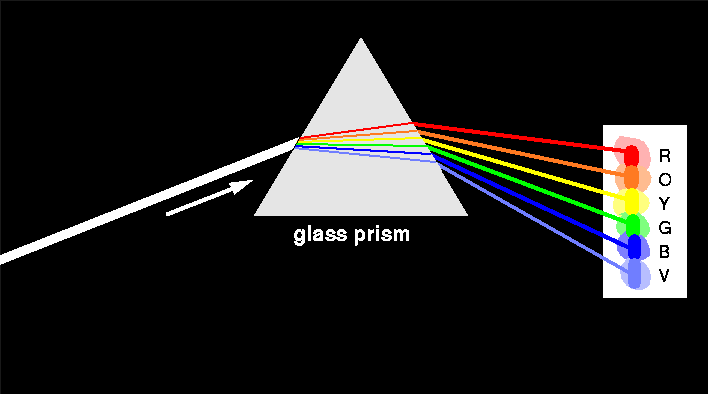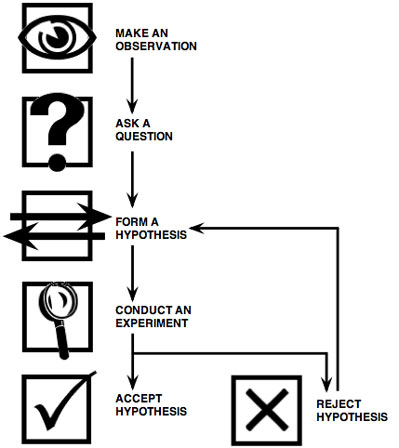Science*, we regularly hear the blasted word in our day to day lives. Whether your a student barely tolerating the drivel coming out of your teacher’s mouth or a commuter reading the latest “Scientific research shows” article. Companies use the veil of science all the time in their adverts to support claims about their products. It’s a word that’s permeated in our busy lifestyles and no matter what you may think, science is a powerful thing. Just ask the guy who made the latest shampoo advert. Your constantly affected by science, whether your aware of it or not.
But what exactly is science? How many of you guys can actually define the word? (Yes, without looking in the dictionary) Ask a bunch of people to define science and you’ll probably get a hodgepodge of different answers depending on who you ask. Some of them will probably tell you it’s a really complicated subject reserved for people in lab coats with no social life, while others will tell you it’s a useless collection of facts, formulas and figures. Even dictionaries don’t shed much light on the topic, with some of them reserving half a page for the word with five different definitions. After a thorough rummaging, I’ve found the most commonly recurring one:
the systematic knowledge of the physical or material world gained through observation and experimentation.
Sound’s a little tedious right? Let’s break it down!
Firstly, one of the main things that this is imposing is that science is a practical thing. It actually involves getting up and doing stuff. Yeah sure, sometimes it does involve reading through textbooks, sitting through lectures and working out the pressure generated by an elephant wearing stiletto heels. Although, science is predominately about discovery, a hands-on experience driven by something beautiful and utterly brilliant. Something that separates us from every other living being. It’s called curiosity. Think about it, hedgehogs don’t philosophize about the origins of the universe, humans do. It’s as simple as that. Science is about discovering new things to satiate our curiosity. Sometimes, the information we learn fits together in meaningful ways and it may help us do something that works out well for people. For example, finding a vaccine for a deadly disease.
Secondly, science is formed upon observation. Looking at things closely in order to get information. You have to use all your senses to make sense of the world around you, that’s how you can know what’s real. That’s what science is. As Richard Feynman once said:
“It’s a way of not fooling ourselves”
You can tell what’s there by using your senses, either directly or indirectly. Scientists can use special instruments like telescopes or microscopes to aid their senses.
These observations are then usually recorded. Scientists write down what they either see, hear, feel or smell ( Unless you don’t want evidence for your discovery). These recorded observations are called data, and this is when maths and science work together in perfect harmony. The data is the backbone of science and it reveals the structure of something. There’s two types: quantitative data and qualitative data.
Quantitative data deals with numbers and figures. For example, the speed of light is 299,792,458 meters per second (670,635,729 mph).
Qualitative data are just written descriptions about something. For example, all birds except penguins have wings. (I think this is wrong by the way).
Scientists analyse the data and their observations to try and understand how things work. This requires inductive reasoning, or the ability to derive generalizations based on specific observations. Here’s a simplified example of inductive reasoning scientists use to find extra-terresstial life forms.
Every life form that everyone knows of depends on liquid water to exist.
Therefore, all known life depends on liquid water to exist.
And in the case of finding alien life forms, this helps scientists by narrowing down the results. So basically, inductive reasoning is about deciphering the ‘hidden message’ from data. The generalizations you get through inductive reasoning are powerful things because they enable scientists to make predictions, and to test those predictions they perform experiments.
Here’s a brilliant example.
Issac Newton ( you may have heard of him), believed that white light/sunlight was made up of lots of different colours i.e the colours of the rainbow. He believed this because he observed that when white light passes through a prism (A triangular chunk of glass) all the colours of the rainbow appear at the other end. He thought the prism somehow separated the white light into all the colours of the rainbow. He called this ‘rainbow’ the spectrum.
Newton used his observation or his qualitative data to try and understand what light consisted of. He used inductive reasoning to make a generalization/prediction- light is made up of lots of different colours. To seal the deal, he devised an ingenious experiment:
As you’ve probably already figured out from the drawing, when the spectrum came out of the first prism, Newton let the light shine on a piece of card with a slit on it so that only one part of the light (one colour) goes through. As the single colour, which in this case is yellow went through another prism at the end, it came out as yellow. This proved that only white light was a combination of all the colours in the spectrum.
So that’s just a brief overview of what science is and how it works. The above example shows how it can be applied to discover new things.
This graphic might be of help if you didn’t quite get the process. By the way, hypothesis just means prediction.
I leave you with this brilliant quote:
*From latin scientia, meaning “knowledge”. Makes sense, most scientific terms come from latin.




